
The Free Press

In my humble and completely unbiased opinion, you should read everything The Free Press publishes. But as you may have noticed, we are publishing more than ever—this week some 30 pieces, to say nothing of podcasts, videos, and livestreams.
There are, however, always a few stories that stick out to me each week—stories that are worth revisiting because they changed the conversation or captured the moment. So as a service to readers like you—the people who keep our little pirate ship afloat—we’re rolling out a new weekly feature where I round up the must-reads of the week.
And what better week to do it? The news has been insane. The stock market! The bond market! The tariffs! The pause on the tariffs! The new tariffs taking their place! And that’s just the financial news, which is supposed to be boring.
This is starting as an experiment. I welcome your ideas on what to feature in this email and, more broadly, how best to share our work with you.
It’s a dizzy, disorienting moment. So let us help you make sense of it. Here are my favorite reads of the week from The Free Press and beyond.
What Is This Moment Most Like?
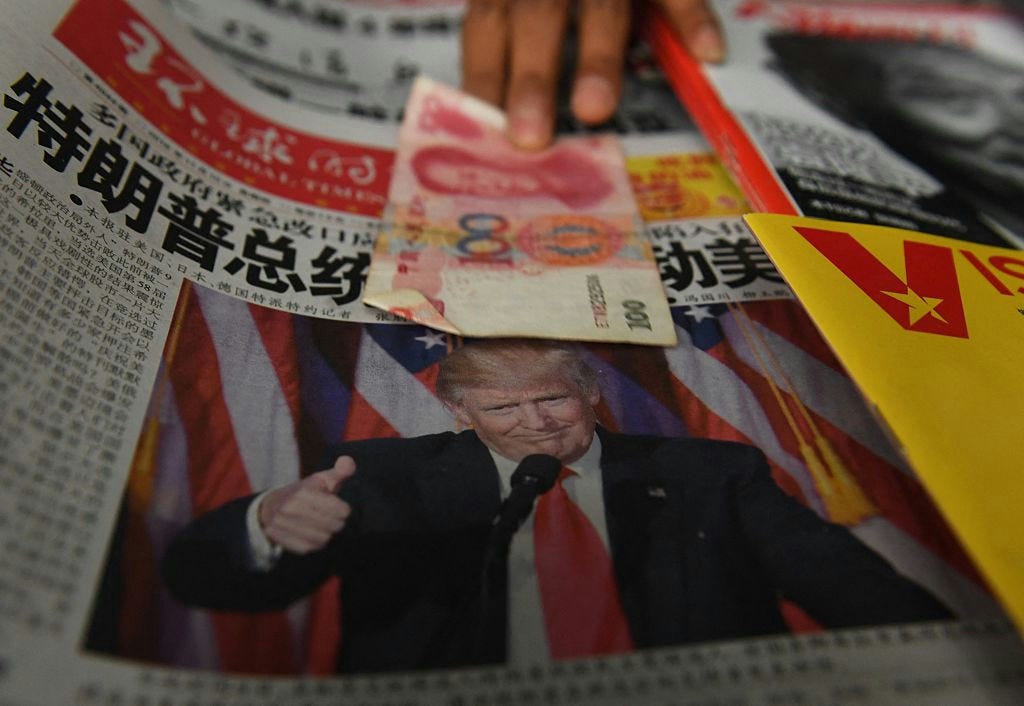
If you were able to stop looking at your 401(k) and turn off CNBC, what became easier to see is that the tariffs are just a piece of a much bigger story.
Are we headed back to the early 19th century—an era of protectionism and isolationism? Did President Trump’s “Liberation Day” take us into a much hotter stage of the ongoing Cold War with China? Have we lurched closer to a real war?
All week, all of us have been reaching for the right analogy to make sense of this unfolding era.
Niall Ferguson argued in his fantastic essay “Trump’s Tariffs and the End of American Empire” that the right way to understand what’s happening is to view this economic policy as the intentional unraveling of U.S. global leadership.
“The American empire that came into existence after the failed autarky and isolationism of the 1930s is being broken up after 80 years,” says Niall in a piece only he could write. “Despite Trump’s imperial impulses—wanting to annex Greenland, calling for Canada to become the 51st state—he is engaged right now in a kind of wild decolonization project.”
Read the whole piece here. Also, Niall is perhaps the best talker in the English language, so do yourself a favor and listen to him on Honestly, diving into greater detail on what happened this week and what to expect next.
Tyler Cowen, meanwhile, believes that we need to go back even further to find the correct analogue for this current moment—a time of radical progress, but also extreme disruption and frequent war. His piece is called “Welcome to Our Weird and Wild Century. It’s a Lot Like the 17th.”
Here’s Tyler:
“It is obvious to many people—on all sides of the political spectrum—that we have left one era and entered another. Our politics feels different—and so does our economy. Some suggest that the change we are feeling is simply the end of the postwar 20th century—as seen in the decline of multilateral liberalism, a retrenchment of globalism, and the resumption of major international conflicts.
My unlikely nomination for the most relevant time and place today is 17th-century England.”
Read the whole piece here.
And… How Did We Get Here?

This week, Martin Gurri traced back our current woes to a single inciting event: the Covid pandemic and Washington’s response. We still haven’t reckoned with how the disease emerged, the fallout from our government’s dishonesty, and how trust in traditional institutions plummeted to such depths that many pulled the lever for the guy who had been targeted by them.
“All the sound and fury signified nothing,” Gurri writes. “ ‘Non-pharmaceutical interventions’ damaged the education of millions of schoolchildren, placed economic stress on workers beneath the laptop class, and added to the financial burdens of the poorest nations, but there’s no evidence they slowed the progress of the virus or lowered the mortality rate. Trillions of dollars vanished in a drunken orgy of borrowing and spending, with the hangover left for later generations.”
It’s an amazing short history of how we got to this moment. Read it all here.
The Enigmatic Usha Vance
Our own Peter Savodnik landed the first interview with the new second lady this week, whom he called the most impressive person to serve in the role “at least since the very first second lady of the United States: Abigail Adams.”
“Vance was top of her class at Yale Law School; an editor of the law review; a clerk for Chief Justice John Roberts; and partner-bound in one of the nation’s most prestigious white-shoe law firms. ‘People taking bets would have said she could have been solicitor general or attorney general of the United States,’ said a close friend from Yale Law.’ ”
And Usha will likely be her husband’s top adviser should he run for president in 2028.
“Everyone in the J.D.-Usha orbit agreed she was his most trusted adviser,” writes Peter. The question is: What does she really believe?
Read the whole piece here.
The Season of Our Freedom
Tomorrow night Jews around the world will sit around their tables and tell the story of our liberation from slavery. As we celebrate our own freedom, we will also pray for those currently enslaved: the 59 hostages trapped in terror tunnels by Hamas.
But the story of the Exodus from Egypt is not just a Jewish story. The journey of the Israelites through the split sea, into the desert, and, ultimately, to the Promised Land, has been a touchstone for so many in other places and times seeking freedom from subjugation—including here in America.
From the founding fathers to abolitionists like Harriet Tubman and Frederick Douglass, to presidents like Abraham Lincoln and leaders like Martin Luther King Jr., the themes and symbols and moral truths of the Exodus story have been at the core of how Americans seeking freedom from tyranny have seen themselves.
No one has brought that history alive for me better than Rabbi Meir Soloveichik, who helms the oldest synagogue in the United States. (You can listen to him on the subject right here—this early episode of Honestly remains one of my favorites.)
Today Soloveichik writes in our pages about the great Hollywood filmmaker Cecil B. DeMille, his classic The Ten Commandments, and how America owed its greatness to the Jewish Passover story.
Passover is called zman cherutenu: the time of our freedom. May this season bring freedom of all kinds to all of us. And literal freedom, above all, to those languishing in slavery.
Must-Watch: When our friend Douglas Murray agreed to sit down with Dave Smith on Joe Rogan’s podcast, he knew it would be contentious. It was certainly that, but also a triumph for Douglas, whose new book, On Democracies and Death Cults, is a book you should read. Cometh the hour, cometh the man.
And a Must-Read from Long Ago: “Dictatorships & Double Standards,” Jeane J. Kirkpatrick’s classic 1979 essay, is worth revisiting in our strange new era of adversary-coddling.
Finally, a Must-Listen: Go for a walk and listen to the latest episode of Breaking History with Eli Lake. It’s about how one book—and one charismatic academic—fueled a decade of campus unrest.
Last but not least: Catch me May 15 on the West Coast! We’re heading with the Foundation for Individual Rights and Expression to San Francisco for our next live debate. The proposition: Will the truth survive artificial intelligence? Tickets are available for purchase here. We only have a handful left, so grab them now.








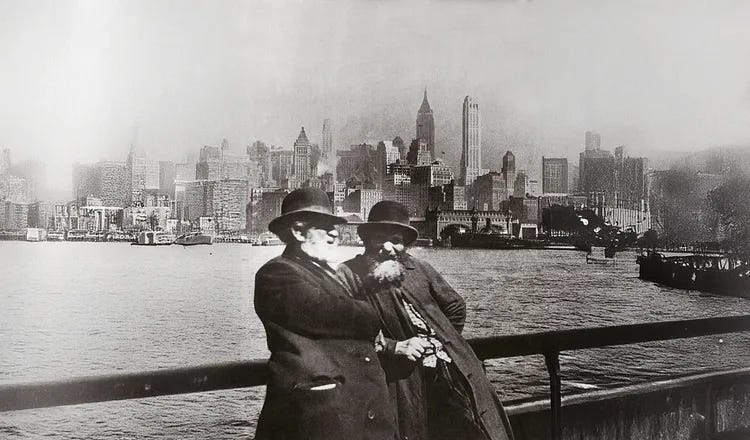

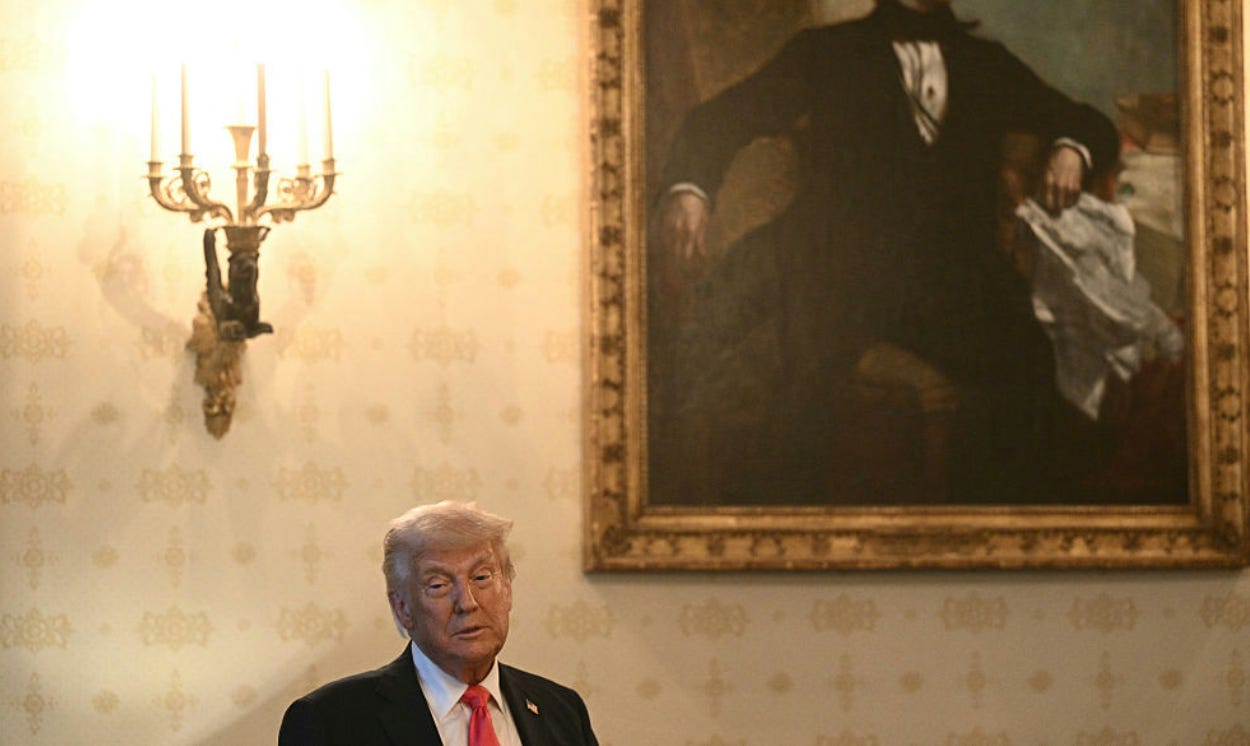

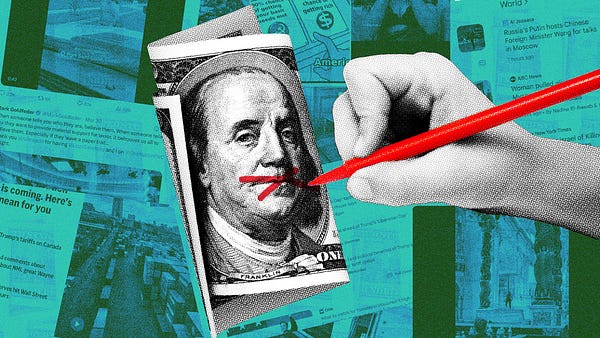

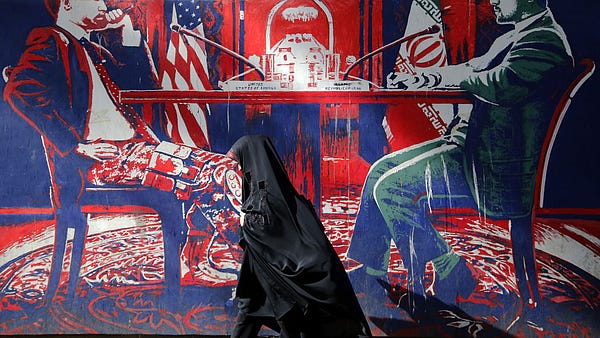



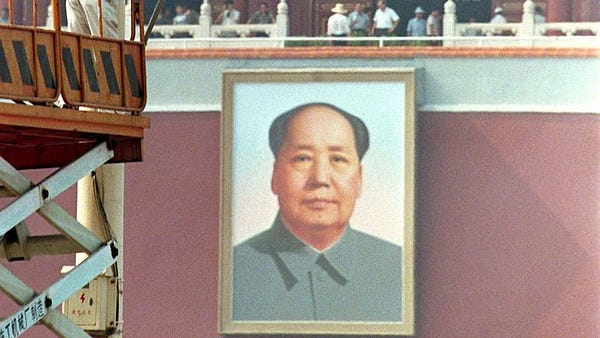

The response to Covid was either "When in trouble, when in doubt, run in circles, scream and shout" or the response was a crafted opportunity to exert greater government control over its citizens.
Good newsletter Bari. I hope you can get more on Usha Vance in the future.